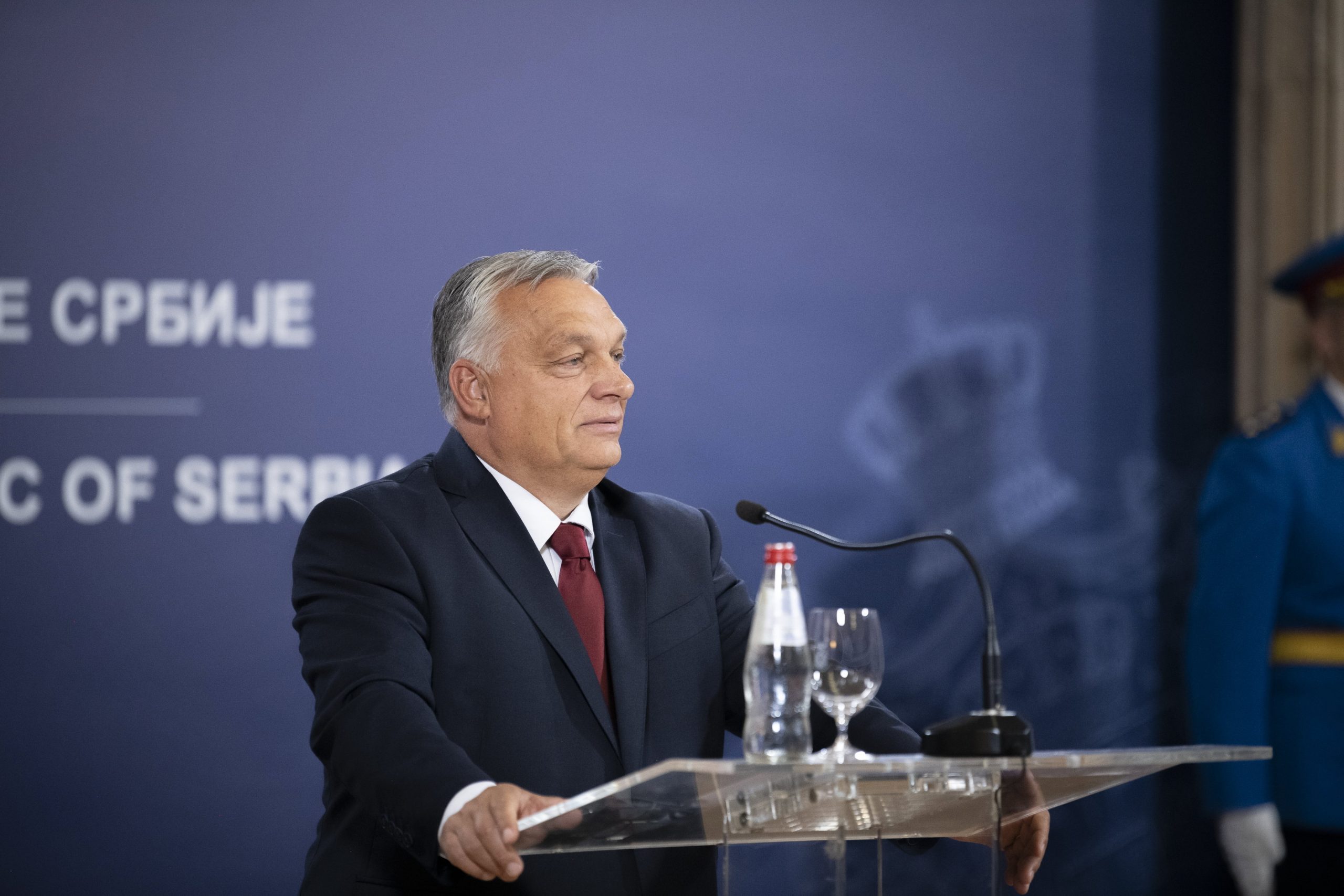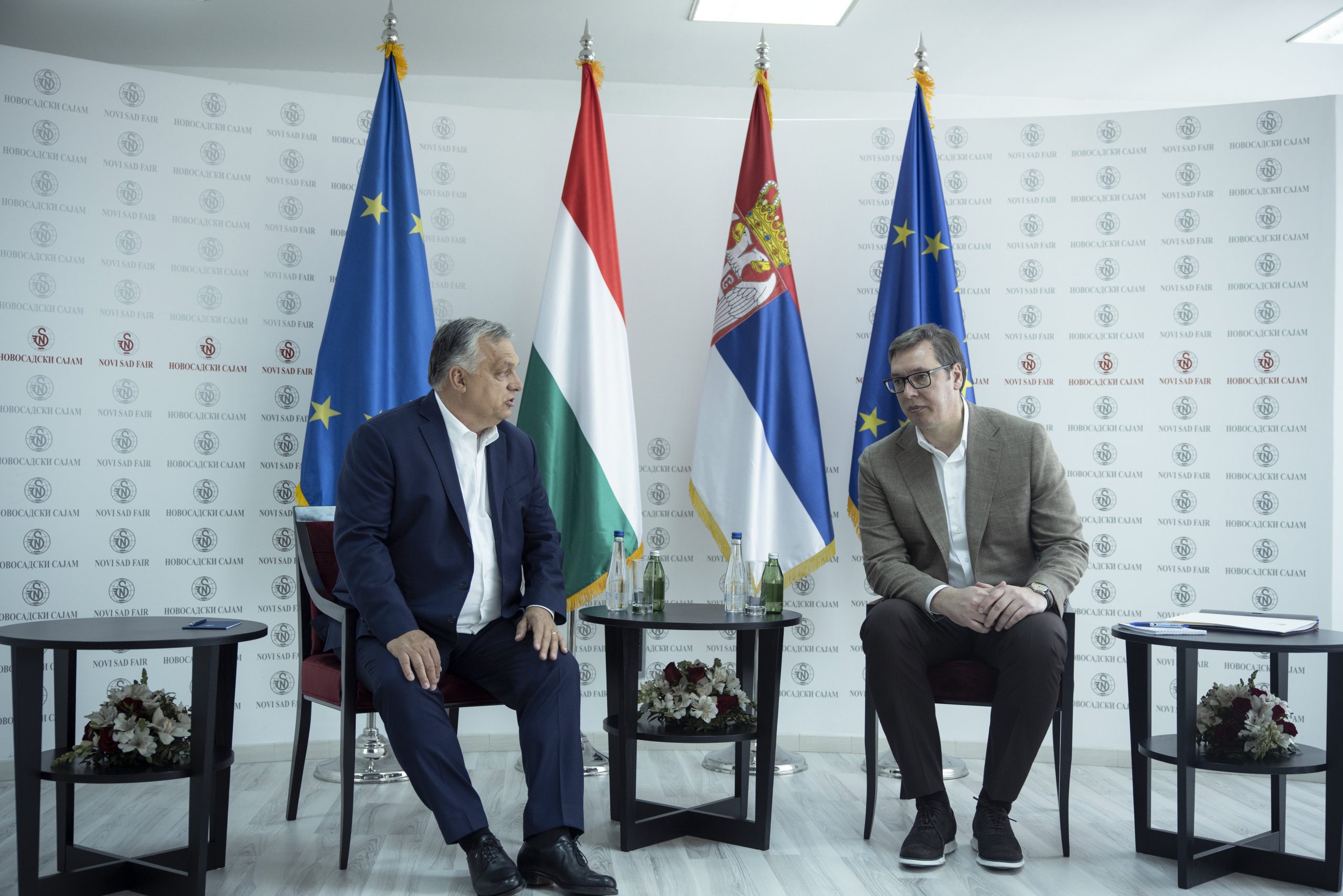
Your Excellency President Vučić, Excellencies, Ladies and Gentlemen,
As I look around me here, the thought occurs to me that Central Europe is a truly wonderful place. This is a special corner of the world, where it is perfectly natural for a synagogue to be decorated with Hungarian folk art motifs, just as it is equally natural to consider the genre of the Hungarian nation’s anthem as a jeremiad. This cultural diversity has nothing in common with superficial multiculturalism. Here many centuries have moulded together the peoples who live alongside each other, and this is reflected in our songs, ballads and buildings. In my years at university, there was a popular song called “The Rooster is Crowing”. There were some who recognised this as the favourite song of Isaac Taub, the Great Rabbi of Nagykálló; others saw it as the song of the Prince of Transylvania Gábor Bethlen; and there were still others for whom it was part of the world of Slavic melody. It is now hardly possible to accurately pinpoint how many sources contributed to it and how many peoples sang it before it became the common property of the Central European Jewish community. The origins of the song were not what was important to us university students in the 1980s. Back then we sang it because we were waiting for a time after the communist dictatorship when a free world would dawn upon us, when the peoples of Central Europe could again live in peace and freedom.
Ladies and Gentlemen,
There is a good chance that 26 March 2018 will be seen as one of those days when Central Europe showed the world its most attractive face. What is happening here? The Serbian president and the Hungarian prime minister have come to Subotica/ Szabadka together with deeply respected Jewish religious leaders to inaugurate Europe’s second largest completely renovated synagogue: our common cultural heritage, a sacred Jewish building of unique style, the gem of the city and an outstanding example of Central European Secessionist architecture. The word “synagogue” means “house of assembly”. It is in this spirit that we are here today. We have gathered together because we have succeeded in restoring the original lustre of this marvellous building. We have gathered together because we are united by respect for Jewish culture and the Jewish people, which has contributed to the economic, cultural and scientific achievements of Serbia, Hungary and the whole of Europe to an extent which exceeds its size in terms of numbers. And finally, we have gathered to show our joint respect for a brave and close-knit community: for a congregation whose members raised this building not only for themselves, but also because, as the Chief Rabbi of the time said, “Let there be a precious monument and a beautiful ornament for the city”. The foundations laid then were so strong and solid that your synagogue was able to survive the most turbulent decades of the 20th century, and then the complete loss of its function. When under communism the very survival of the building what at stake, the members of the many nationalities and religions in the city stood up in unity to ensure its preservation. The salvage and renovation of the city’s synagogue is a good example of the fact that we Serbs, Jews and Hungarians are capable of anything if we unite in the service of a noble cause. It is also a good example of the fact that we now live in times here in Central Europe when the past is not a burden, but the past opens the gate to a common future: a future in which Hungarians, Serbs and Jews will live and work together in peace and safety. Therefore we thank Serbia, we thank President Vučić, and we thank the Hungarians of Vojvodina/ Vajdaság!
Ladies and Gentlemen,
This future has already begun. It is being jointly written by Serbs and Hungarians in this city, and together with other peoples across the whole of Central Europe. Today the inauguration of this synagogue is not only a special event, but also a message. It sends the message that this is the world, this is the Europe in which we want to live, which we represent, for which we are working, and which we shall defend. Ladies and Gentlemen, why are we Catholics, Orthodox Christians and Protestants able today to celebrate the rebirth of this building together with our Jewish brothers and sisters? There is a single obvious reason for this. We still live in the Europe which rests on the Jewish and Christian heritage, on the Old Testament and the New Testament. And for as long as we stand on these foundations, the freedom of every person, and their right to their own religion, language, culture and customs will remain as natural as breathing.
Fellow Congregants,
If we allow this ground to be cut from under our feet, if we allow others to replace the cultural subsoil of Europe, then, instead of us, others will write the future. We know that in the world today there are many places where an event such as this could not take place. We know that in the world today there are regions to the south and east of us where our Jewish and Christian brothers and sisters are being persecuted. And we know that in the world there are areas to the west of us in which churches and synagogues are not being renovated, but being torn down. We, however, are proud of the religious heritage which has given us this city and the magnificent creation which we call Europe. Therefore in 2014 – the Holocaust Memorial Year in Hungary – the Hungarian government decided to launch a synagogue renovation programme, with a budget of around 10 billion forints. Within this programme many buildings – from Budapest to Vynohradiv/ Nagyszőlős, and from Berehove/ Beregszász to Subotica/ Szabadka – have been renovated and saved from destruction. After World War II and the years of atheist dictatorship which followed, we feel that it is our moral duty to stand up for a Hungary and a Europe in which Jews and Christians can live without fear and freely practice their religions.
Ladies and Gentlemen, Honourable President,
We think that a single path leads to a safe and viable future for Central Europe and for Hungarians within it: a Europe which insists on its Jewish and Christian heritage. We can imagine our future within this Europe, and naturally Serbia – with its Orthodox roots – belongs to this Europe and this future. We are pressing for Serbia’s membership of the European Union, as the Serbs have long belonged among us. For this we wish much success for Serbia, and our friend President Vučić. For this city and its Jewish community I wish that they can fill this wonderful building with life, so that it can be a home to congregations, to prayer, to teaching and to remembrance for many centuries to come.
God bless you all!

